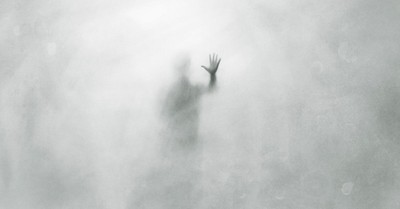
Paul’s instructions in Philippians 4 should guide our celebrations. Christians should think about “whatever is true, honorable, just, pure, lovely, and commendable.”

Paul’s instructions in Philippians 4 should guide our celebrations. Christians should think about “whatever is true, honorable, just, pure, lovely, and commendable.”
Author and theologian John Piper has warned against communicating with the dead because it goes against the Word of God.
Pastor Greg Locke of the Global Vision Bible Church in Mount Juliet, Tennessee, plans a deliverance service for children this Halloween.
A survey by LifeWay Research several years ago found that Christians are divided over the celebration of Halloween. Most (54 percent) said it was all in good fun, while 18 percent celebrated it but without the pagan elements and 23 percent avoided it altogether.
The numbers – if you’re curious -- weren’t significantly different among evangelicals, with 45 percent calling it a fun celebration, 23 percent only avoiding its pagan elements and 28 percent ignoring it completely.
Wherever Christians land on Halloween, though, we should avoid celebrating evil. The same premise applies to so-called scary movies. Scary movies – whether in the horror, thriller or science fiction genres – often are void of any redemptive elements. Instead, you leave the theater feeling like you need a bath.
But there are plenty of scary movies that are fun, thrilling, and family-friendly. They don’t celebrate evil. Some even are thought-provoking.
Here are 10:
Photo credit: ©GettyImages/undefined undefined
Events and decisions in our lives fall into three categories—biblical, nonbiblical, and unbiblical.
Halloween is nonbiblical: God’s word does not command it, which would make it biblical, or forbid it, which would make it unbiblical. However, Scripture does teach us what would be biblical to do today, such as using the day for church outreach events, getting to know your neighbors so you can build relationships for the gospel, and spending fun time together as a family. And it teaches us what would be unbiblical to do today, such as engaging in occult practices or anything that would glorify Satan.
Halloween is October 31, and many Christians are wondering how and if they should celebrate the holiday.
Here’s a little experiment for you: Next Sunday at church, walk up to random people during the greeting time and say, “Trick or Treat!”
Some folks will smile, and maybe offer you a breath mint treat. These are the Christians who generally pass out the best candy on their street, dress up in fun costumes, and host the annual Fall Festival party at your church. Others will frown, and maybe offer to cast out a demon or two. These are the Christians who boycott the “devil’s holiday,” abstaining from festivities and turning off the porch lights on October 31.
Well, I’ve got a treat for both kinds of Christians today.
Regardless of whether you’re a lover or a hater, I’m betting there are at least 10 things you don’t know about Halloween. Ready to find out what you’ve been missing? Let’s go!
Photo credit: ©Thinkstock/monkeybusinessimages
A new survey found that 90 percent of pastors have specific views on how their congregations should observe Halloween.
It is estimated that Americans will spend $10.1 billion on Halloween this year, including $3.3 billion on costumes and $3 billion on candy. Such a popular event can be a great opportunity to reach out to those around us with Christian truth and love (Ephesians 4:15).








